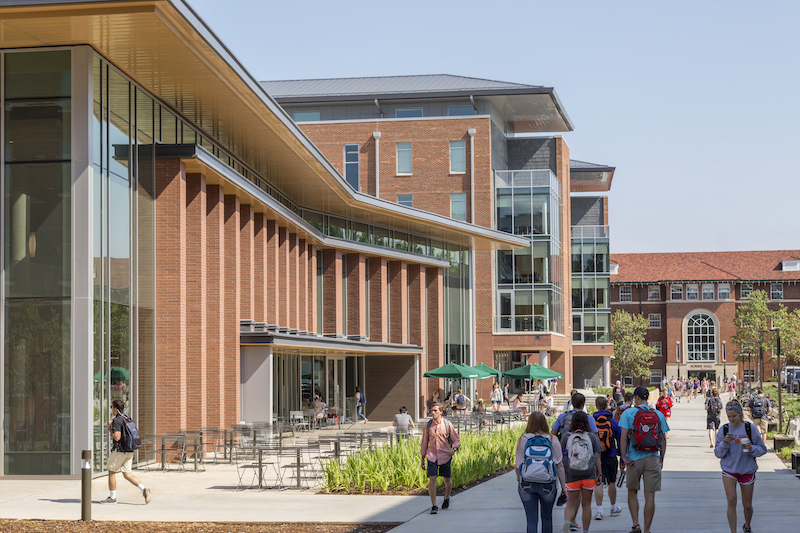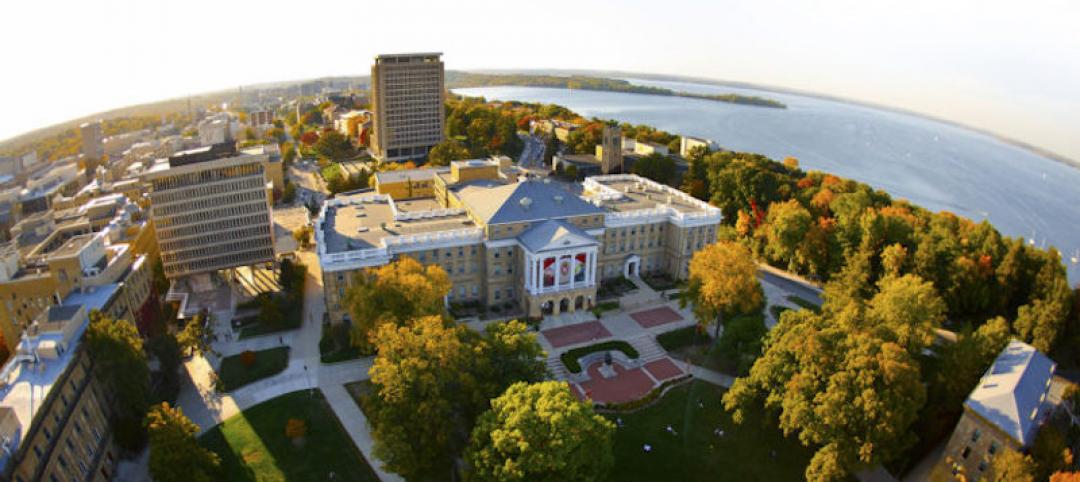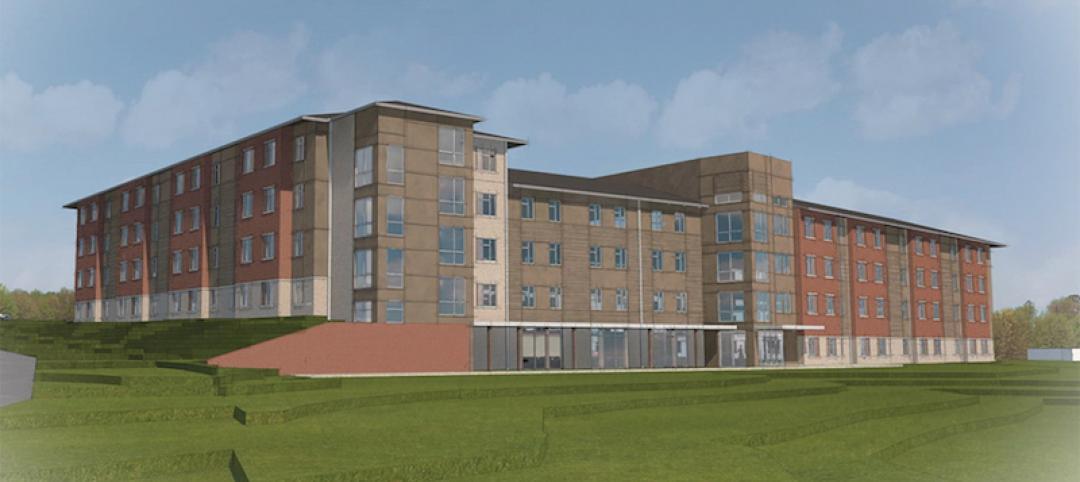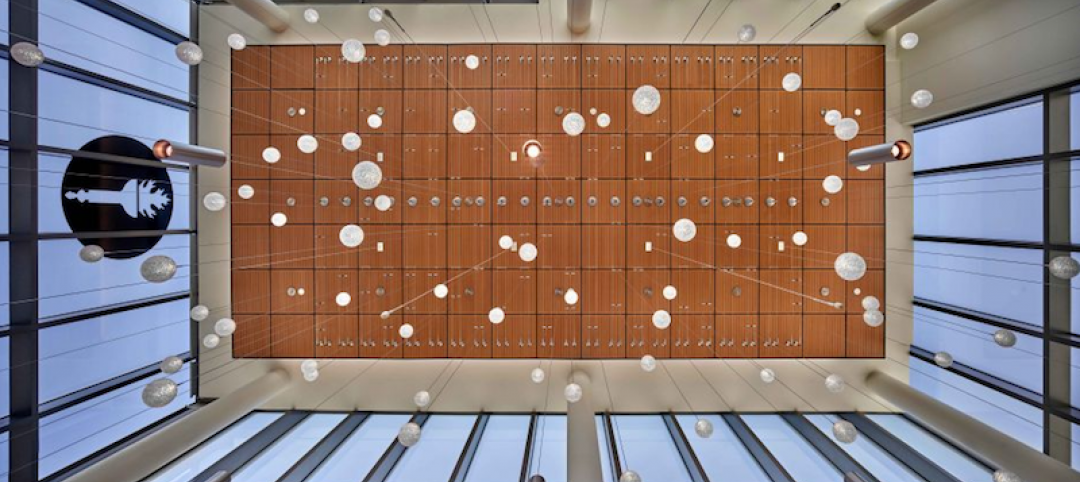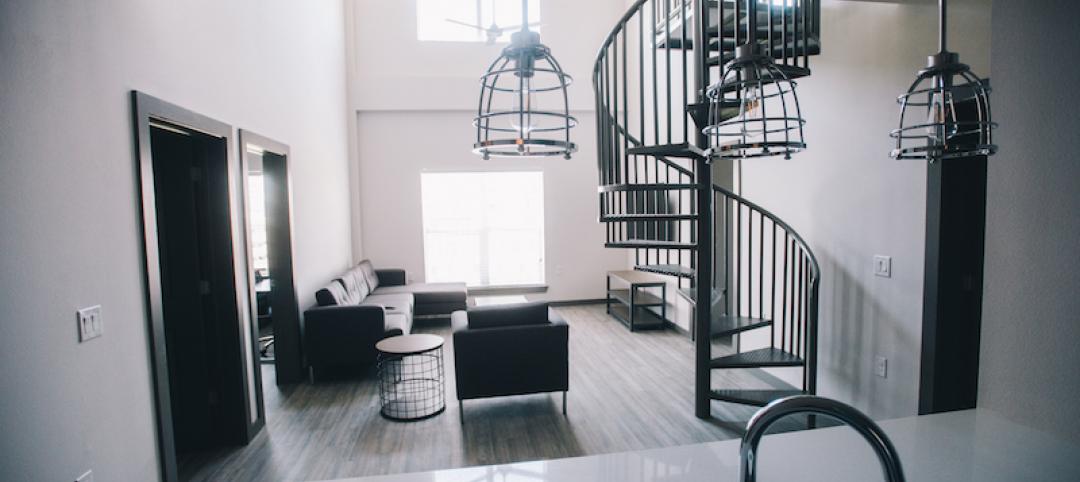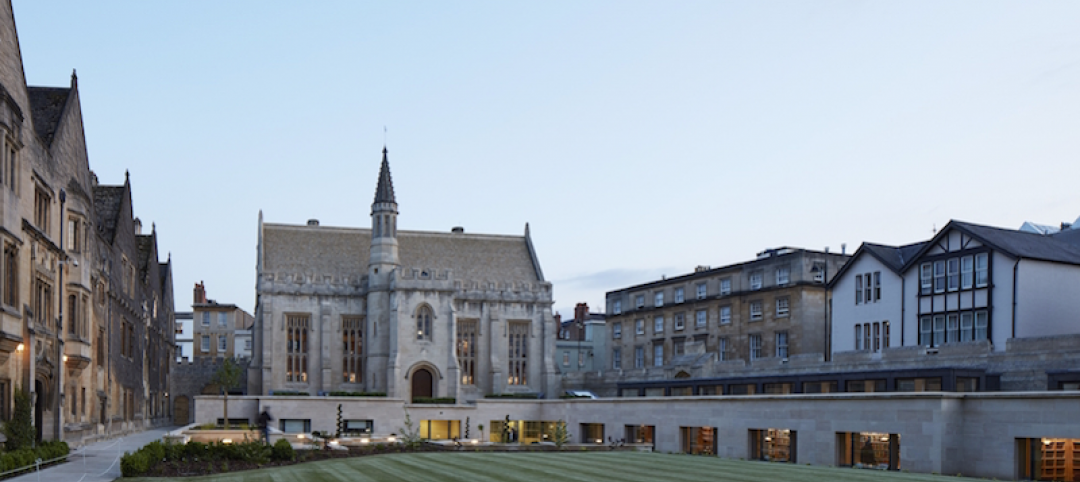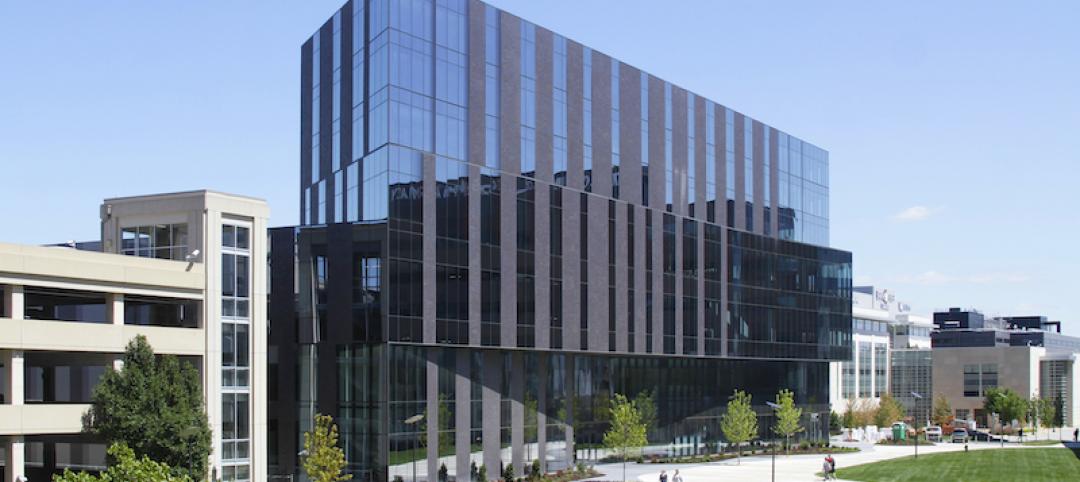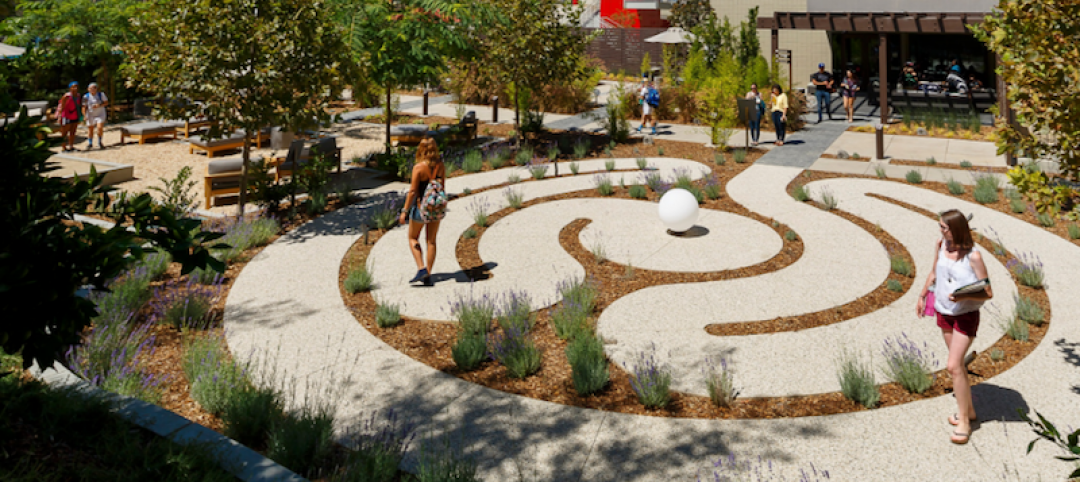One year after it opened, Clemson University’s $30 million, 81,000-sf Core Campus Dining Facility is one of the South Carolina-based school’s most popular gathering places.
The 1,200-seat, two-story dining hall, designed by Sasaki, is a major component of Clemson’s $96 million Core Campus that includes three new residence halls with 688 beds, designed by VMDO Architects.
The campus’s buildings are interconnected by a North-South “avenue” and exterior promenade with gardens and terraces, according to Ivelisse Otero, Sasaki’s design project manager.
The dining hall services roughly 5,700 students per day. It features The Fresh Food Company, an open-display cooking concept devised by the college’s longtime foodservice contractor Aramark, with a variety of stations for deli, pizza and pasta, desserts, salads, and all-day breakfast.
Students are especially enamored of the cooked-to-order aspect of these venues, which offer such options as Southern-style cuisine and even chef’s table events.
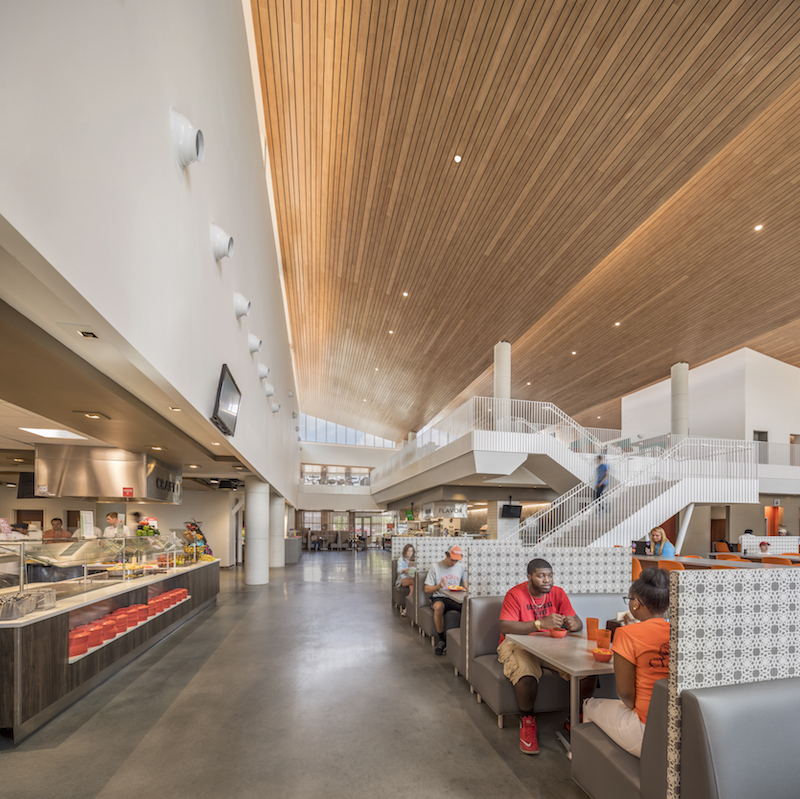 Clemson University's year-old dining hall offers students a variety of culinary choices, including four free-standing restaurants. Image: Jonathan Hilyer
Clemson University's year-old dining hall offers students a variety of culinary choices, including four free-standing restaurants. Image: Jonathan Hilyer
And not that eating is a religious experience, but the dining hall’s high ceilings and ample lighting might suggest a cathedral to some students. Notably, there’s an upper mezzanine where students can hang out, study, and snack in a more casual lounge environment.

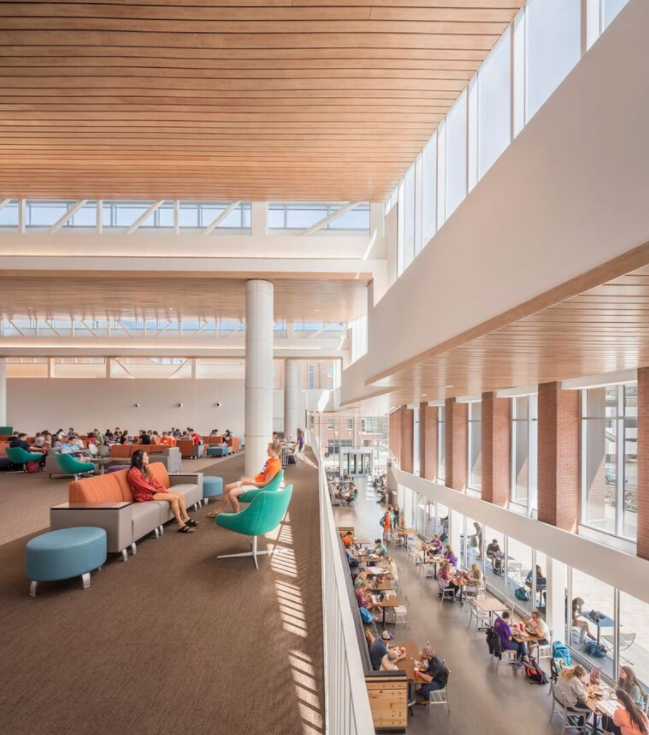 A mezzanine level allows students to hang out and snack in a lounge-like environment. Image: Jonathan Hilyer.
A mezzanine level allows students to hang out and snack in a lounge-like environment. Image: Jonathan Hilyer.
Anthony Harvey, Clemson’s Director of Housing and Dining Facilities, tells BD+C that the university’s main objective with this project was to keep more sophomores on campus by replacing aging infrastructure with a newer, larger facility with better mechanicals and flexible spaces for reprogramming.
He acknowledges that the dining and residence halls, along with Clemson’s academic and athletic facilities, are recruitment and retention tools. (The Core Campus is located near Frank Howard Field at Clemson Memorial Stadium. BD+C recently recognized Clemson’s $55 million, 142,500-sf Allen N. Reeves Football Complex as one of this year’s Building Team award winners.)
Harvey adds that the university wanted to increase the amount of retail on the west side of campus. It moved a Starbucks from across the street into a ground-floor space in the dining hall. The building has three other branded restaurants—Raising Cane’s (chicken fingers), Twisted Taco, and Which Wich (sandwiches)—as well as a convenience store. The four restaurants have a combined capacity of 300 seats.
“Our design elaborates on the concept of the marketplace, where users can meander between retail, dining, and residential halls,” explains Otero.
Sasaki was the design and landscape architect on this project, whose Building Team included Stevens & Wilkinson (MEP, SE, AOR), and Whiting-Turner Construction (GC). The buildings are targeting LEED Silver certification.
The dining hall’s construction was plagued by a series of rain delays and budgetary constraints. But since the hall opened in September 2016, Harvey says some design features, like wall tiles and signage, which were edited out because of cost, have been restored.
Related Stories
Higher Education | Sep 18, 2017
Campus landscape planning of the future: A University of Wisconsin-Madison case study
Recognizing that the future health of the campus and lake are interdependent, this innovative approach will achieve significant improvements in stormwater management and water quality within the university’s restored, more connected network of historic and culturally rich landscapes.
University Buildings | Sep 15, 2017
New Blinn College Residence Hall hopes to decrease the size of the campus housing wait list
In 2016, more than 400 students were placed on the wait list due to lack of available on-campus housing.
Sports and Recreational Facilities | Sep 11, 2017
Mid-size, multi-use arenas setting a trend for the future
While large 20,000-seat sports venues aren’t going away, mid-size venues provide advantages the big arenas do not in a time of budget constraints and the need for flexibility.
Giants 400 | Sep 7, 2017
Top 95 university construction firms
Turner Construction Co., The Whiting-Turner Contracting Co., and Barton Malow top BD+C’s ranking of the nation’s largest university sector contractor and construction management firms, as reported in the 2017 Giants 300 Report.
Giants 400 | Sep 7, 2017
Mashup in the halls of ivy: Campus expansions put the emphasis on elevating the student experience
Today’s multi-functional buildings support a diverse range of academic programs, with transparent walls to foster interdisciplinary collaboration.
University Buildings | Sep 5, 2017
Rohrer College of Business supports the schools academic programs with several key spaces
Designed by KSS Architects and Goody Clancy, the new facility opened prior to the fall 2017 school year.
University Buildings | Sep 1, 2017
The University of Texas receives boutique-style student housing complex
The Ruckus Lofts provide 46 furnished units and 165 beds for UT students.
Libraries | Aug 30, 2017
1850s library building is brought into the 21st century
The original building was updated and given a new extension and landscaping.
University Buildings | Aug 28, 2017
Just what the doctor ordered: St. Louis College of Pharmacy receives new student center
The $50 million building adds over 193,000 sf of space to the campus.
K-12 Schools | Aug 18, 2017
How to create healthy learning environments with active design
Active design can be incorporated into any facility or campus with a few simple steps.


